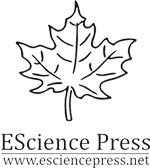Knowledge-Practice Gaps in Medical Ethics: A Cross-Sectional Study of Healthcare Professionals at a Pakistani Tertiary Hospital
DOI:
https://doi.org/10.53576/bashir.006.01.0228Keywords:
Healthcare Workers, Nurses Knowledge, Medical Ethics, Medical Legal and Ethical Issues, Pakistan Institute of Medical Sciences, Patient Care, Quality of Healthcare ServicesAbstract
Background: Quality healthcare relies on medical ethics, which helps professionals to make complicated decisions based on patient autonomy, beneficence, non-maleficence, and justice. This study evaluated the knowledge, attitudes, and practices (KAP) of HCWs in Pakistan Institute of Medical Sciences (PIMS) to determine the gaps and provide a basis on which to design specific educational interventions. Methods: A cross-sectional study was done at PIMS, where 264 healthcare professionals (consultants, registrars, house officers, medical students, and postgraduate trainees) were involved. They used a structured questionnaire to collect the information that consisted of demographics, self-reported medical ethics/laws knowledge, sources of training, the frequency of ethical issues, attitude toward the main principles (e.g., informed consent, patient rights), and ethical decision-making practices. SPSS 22 was used to analyze descriptive statistics (frequencies/percentages). Results: The participants of the study were males (60.61%), aged 21-30 (48.48%), and with more than five years of working experience (39.4%). Major gaps in knowledge were found: 21.2% of them knew about the Nuremberg Code, 24.2% about the Helsinki Declaration, and 36.4% about the PMDC Code. Although 69.7 % of them considered the knowledge of ethics as very important, 30.3 % had average knowledge of the laws that were relevant, and 18.2% did not know the relevant laws. The first source of knowledge was training (ethics: 42.4%; laws: 45.5%). In terms of practices and attitudes, 57.6 % of them sometimes got informed consent in the local language, and 24.2 % of them never gave copies of consent to patients. Just 27.3 % indicated that an active ethics committee (IEC) existed in their institution, and 63.6 % were uncertain. The attitudes indicated contradictions: 39.4 % of the respondents indicated that ethical conduct was mainly to prevent legal action, whereas 45.5 % of the respondents indicated that written consent was a requirement in clinical trials. Lastly, 24.24 % of them experienced ethical/legal problems daily, but 39.39 % did not experience any such problems. Conclusion: The HCWs at PIMS have identified the value of medical ethics, yet they have a high level of knowledge gaps in the basic codes of ethics, laws, and the roles of IECs. Variability in informed consent and low IEC involvement identify systemic gaps. A special, ongoing education that combines formal ethics training, hands-on workshops, and IEC reinforcement is urgently required to improve ethical competency and patient care quality within the healthcare system of Pakistan.





